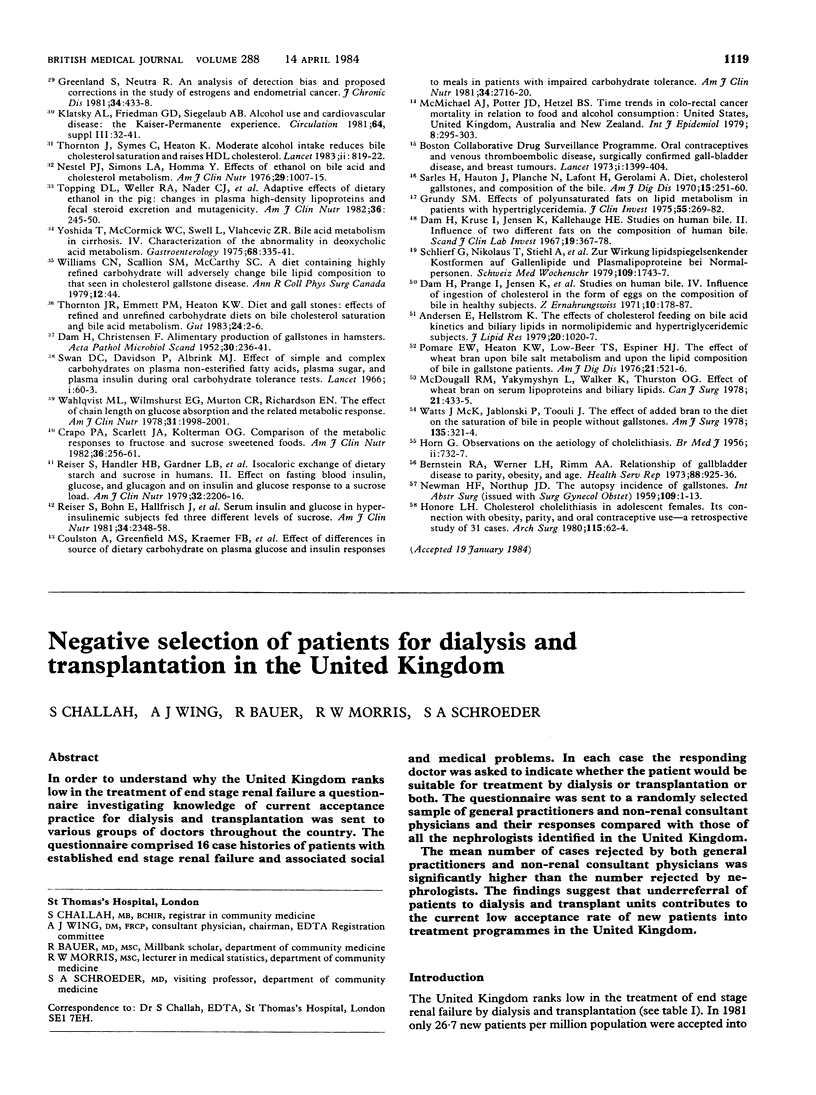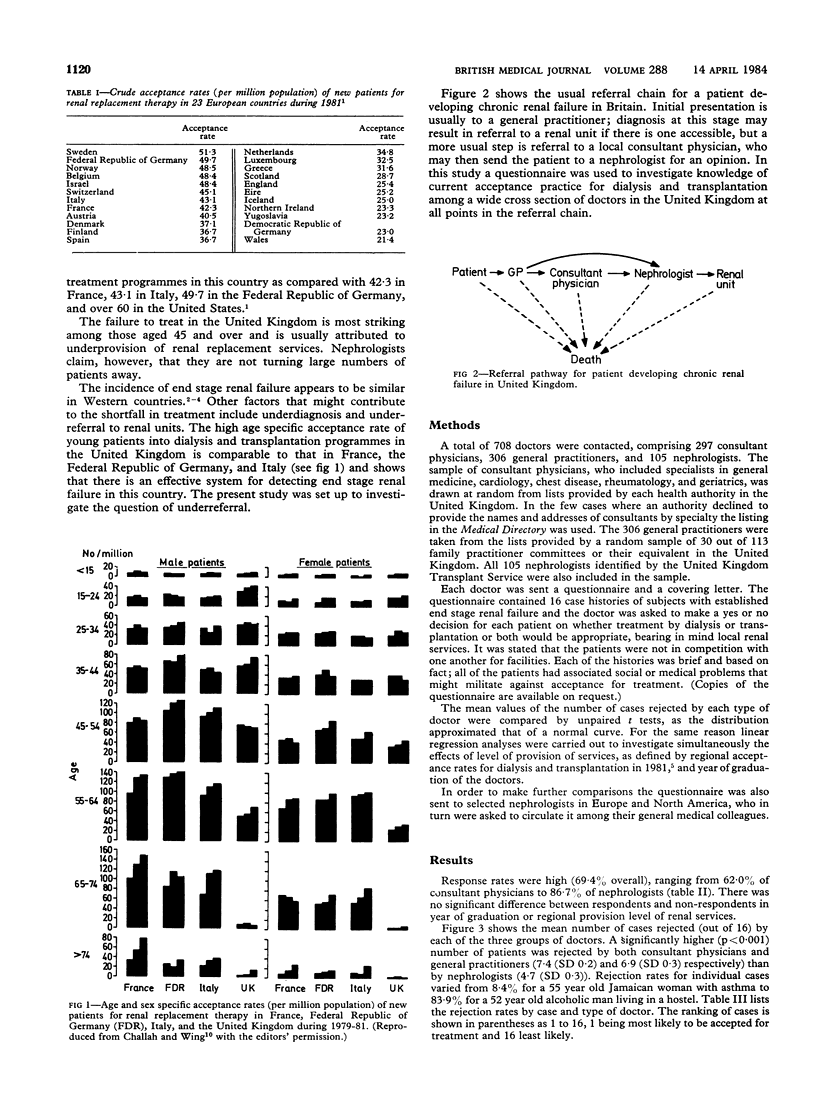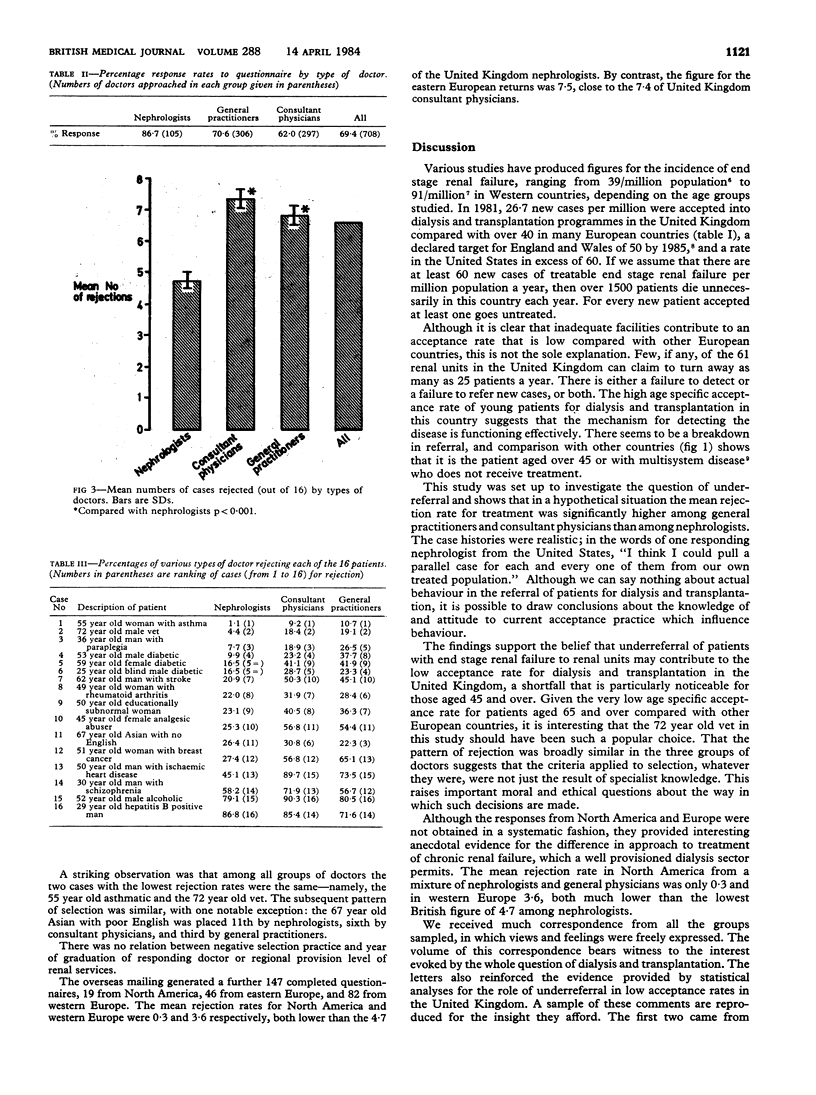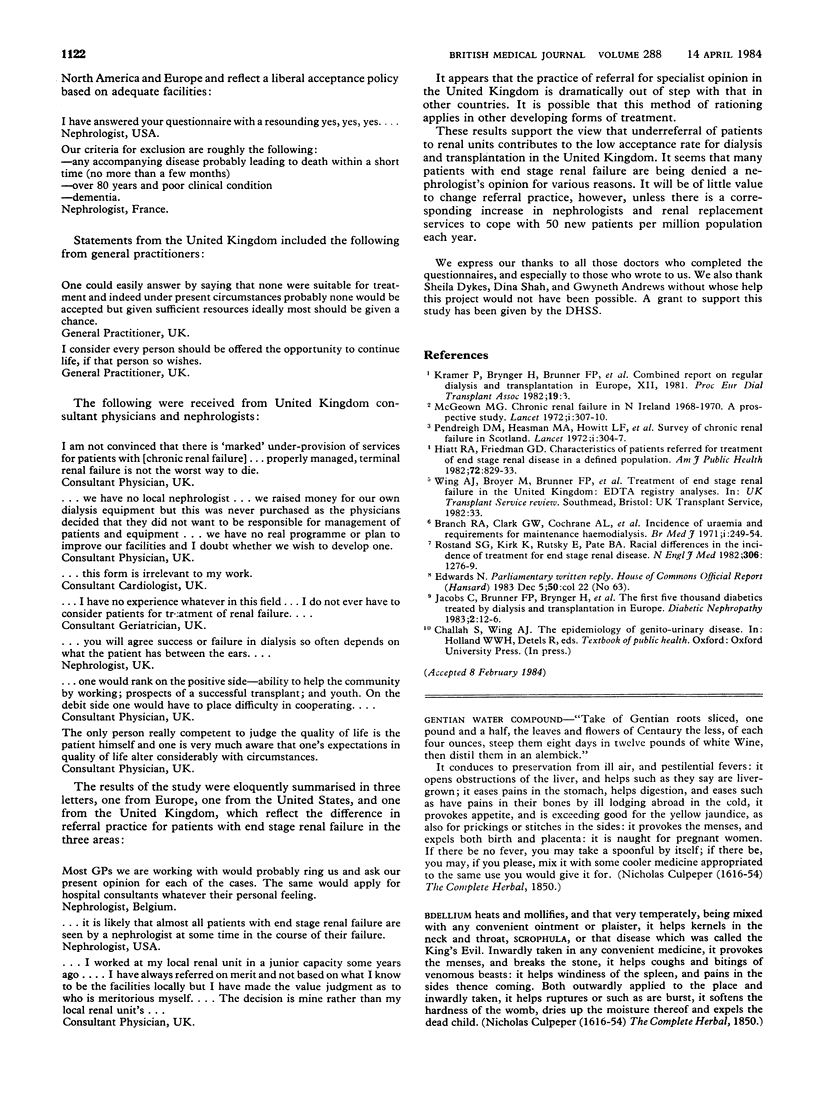Abstract
In order to understand why the United Kingdom ranks low in the treatment of end stage renal failure a questionnaire investigating knowledge of current acceptance practice for dialysis and transplantation was sent to various groups of doctors throughout the country. The questionnaire comprised 16 case histories of patients with established end stage renal failure and associated social and medical problems. In each case the responding doctor was asked to indicate whether the patient would be suitable for treatment by dialysis or transplantation or both. The questionnaire was sent to a randomly selected sample of general practitioners and non-renal consultant physicians and their responses compared with those of all the nephrologists identified in the United Kingdom. The mean number of cases rejected by both general practitioners and non-renal consultant physicians was significantly higher than the number rejected by nephrologists. The findings suggest that underreferral of patients to dialysis and transplant units contributes to the current low acceptance rate of new patients into treatment programmes in the United Kingdom.
Full text
PDF



Selected References
These references are in PubMed. This may not be the complete list of references from this article.
- Branch R. A., Clark G. W., Cochrane A. L., Jones J. H., Scarborough H. Incidence of uraemia and requirements for maintenance haemodialysis. Br Med J. 1971 Jan 30;1(5743):249–254. doi: 10.1136/bmj.1.5743.249. [DOI] [PMC free article] [PubMed] [Google Scholar]
- Hiatt R. A., Friedman G. D. Characteristics of patients referred for treatment of end-stage renal disease in a defined population. Am J Public Health. 1982 Aug;72(8):829–833. doi: 10.2105/ajph.72.8.829. [DOI] [PMC free article] [PubMed] [Google Scholar]
- McGeown M. G. Chronic renal failure in Northern Ireland, 1968-70. A prospective survey. Lancet. 1972 Feb 5;1(7745):307–310. doi: 10.1016/s0140-6736(72)90305-4. [DOI] [PubMed] [Google Scholar]
- Pendreigh D. M., Howitt L. F., Macdougall A. J., Robson J. S., Heasman M. A., Kennedy A. C., MacLeod M., Stewart W. K. Survey of chronic renal failure in Scotland. Lancet. 1972 Feb 5;1(7745):304–307. doi: 10.1016/s0140-6736(72)90304-2. [DOI] [PubMed] [Google Scholar]
- Rostand S. G., Kirk K. A., Rutsky E. A., Pate B. A. Racial differences in the incidence of treatment for end-stage renal disease. N Engl J Med. 1982 May 27;306(21):1276–1279. doi: 10.1056/NEJM198205273062106. [DOI] [PubMed] [Google Scholar]


